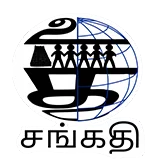
British MPS from across the political aisle unified in their demand last week for the UK government to act on Sri Lanka in the form of Magnitsky-style sanctions; refer Sri Lanka to the International Criminal Court; urge Sri Lanka to meet its GSP+ commitments; and, dramatically reduce its bloated military spending.A Backbench Business Committee debate on the UK response to the human rights and economic situation in Sri Lanka took place on Wednesday (9) in the House of Commons chamber.
Opening the debate, Elliot Colburn, Conservative MP for Carshalton and Wallington and Chair of the All-Parliamentary Group for Tamils, stressed the need to go beyond to the latest UN Human Rights Council resolution.
“The new resolution certainly is a step in the right direction to achieving justice and accountability, but—with respect— we have had resolutions before. International action at the Human Rights Council on its own is not enough. The resolution falls short of providing a mechanism to truly investigate war crimes and pursue criminal accountability”.
Colburn further emphasized the need for Lankan war criminals to be referred to the International Criminal Court. “Specific resources need to be raised to build cases against those who are accused of war crimes and to prosecute them. Criminal accountability should be pursued by referral to the International Criminal Court. Those who commit war crimes should not enjoy immunity because the state in question is unwilling or unable to prosecute them”.
His statement was supported by Siobhain McDonagh, MP for Mitcham and Morden, who asked why the latest UN resolution failed to include a referral to the ICC.
“In the most recent UN resolution, to which the UK was a penholder, why was there no recommendation to pursue criminal accountability by referral to the International Criminal Court?
“I could barely believe my eyes when reading the Government’s reasoning, which cited ‘insufficient…Security Council support’. Who are we to cast a veto for China or Russia before they have done so themselves? Our role on the international stage must be to send the loudest message that impunity will not be tolerated, not to pre-empt the inaction of other nations”.
“Why has Britain failed to impose Magnitsky-style sanctions on any Sri Lankan official implicated in human rights abuses or corruption,” she queried.
In describing Sri Lanka’s economic demise, former Shadow Chancellor, John McDonnell noted that the country’s poverty was not a natural result but due to the political and military framework of the island.
Sri Lanka “has natural resources on a scale any other country would wish for and dream of, including natural mineral resources, and agriculture resources. The problem is that a political and military complex now controls the economy for its own interests. As a result, we have extremes of wealth and poverty through not just mismanagement but calculated management by the military who dominate the economy”.
This point was also raised by Conservative MP Theresa Villiers, who stressed that the British government must “find a way to ensure that any bailout from international institutions be accompanied by rigorous efforts to root out cronyism and corruption in Sri Lanka, and cut the irrationally large military spending budget”.
“The failure to include Tamils in economic activity, a large defence budget that supports a disproportionately large military […] corruption and, of course, poor fiscal policies have led Sri Lanka’s economy to the brink of bankruptcy. For Sri Lanka to be rescued, it needs to reduce its military spending, which stands at $1.86 billion per annum. That makes it one of the largest militaries in the world and costs more than its health and education budgets combined,” Elliot Colburn said.
He further highlighted the corrosive effects of militarization. “The militarisation of the country is also firmly linked to the deteriorating human rights situation on the island. The Prevention of Terrorism Act has been used to target predominately Muslim and Tamil communities, resulting in arbitrary detention, sexual torture and enforced disappearances. In fact, Sri Lanka has the second highest number of UN-registered enforced disappearances in the world, most of whom are Tamils. Furthermore, the Sri Lankan military is engaged in commercial activities in the north-east, including tourism, farming and fishing, which stifles the local economy and prevents Tamils from contributing to economic activity in any meaningful way. That needs to be stopped to allow for regional economic regeneration. Sri Lanka also needs to conduct a strategic defence and security review, similar to the one that the UK completed in 2021, to ensure that its military size reflects its security requirements”.

